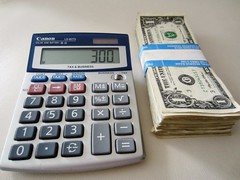Factoring Accounts Receivable
Factoring is a means for a company to raise money without involving a bank in the process and it does not involve getting more debt. It is actually selling an asset owned by the company, i.e. their accounts receivable. The company (also known as the “seller”) sells their uncollected invoices to a third party (called the “factor”). The Factor pays a discounted rate to account for the time delay and the possibility of not being able to collect the entire amount. The factor then becomes responsible for collecting the payments due on the purchased invoices. And the company has money to continue operations. This is called “factoring” or “factoring accounts receivable”. The value paid is dependent on several factors including the “age” of the invoices. Obviously the further past due that they are the less likely they are to be collectable and the less they are worth. Also if the “net” amount isn’t due for a long time into the future they are also worth less.
Why a Seller Might Want to Factor His Accounts Receivable
A seller may choose to use factoring as a means of financing for a variety of reasons. Some vendors offer a discount on supplies to those companies who pay up front rather than using credit. The cash from factoring allows the seller to do so. Additionally, by paying the bill in full, the seller saves the cost of any interest that may have accrued and remains in good standing with the vendor. The cash assets obtained from the factor could also be used to pay off debts to banks or other creditors instead of becoming delinquent while waiting for customer to pay their invoices.
Besides debt and credit benefits, the seller is able to reduce employment costs by selling accounts receivable responsibilities to the factor. The seller no longer has to spend the time or the expense collecting payment from customers, saving the cost of a salary and benefits for the employee that would have otherwise been necessary. In addition, the seller avoids collection headaches and potentially adverse interactions with customers.
Benefits to the Factor
The factor also benefits from the Factoring transaction. Obviously, this is his business and without it he would have no source of revenue. So his motivation is profit. Before purchasing accounts receivable invoices from a company, an astute factor will research the products provided by the seller and the credit history of those with an outstanding balance on the invoices. By only purchasing invoices at a discounted rate from quality companies with credible customers, the factor makes money after the payments are collected. For example, if a seller sold a $100 invoice to the factor for $80, the seller obtains $80 in cash immediately while the seller collects the $100 on the invoice due date, netting $20 in the process. If all goes well, he has earned 20% in a month or two. Of course, he may have difficulty collecting or not be able to collect at all, thus reducing his overall profit.
Once the invoice has been paid, the factor will communicate such with the seller so the seller’s records reflect a “paid in full” status for customers whose invoices were sold. The factor does not acquire the customers or even offer the same products or services as the seller, so the customer relationship remains with the seller.
Throughout the factoring process, no bank is involved and no credit ratings are affected. The transactions, more often than not, prove to be mutually beneficial for both the seller and the factor.


Thanks for sharing this information about Factoring Accounts Receivable. I think that I can use this kind of financing to finance my business.